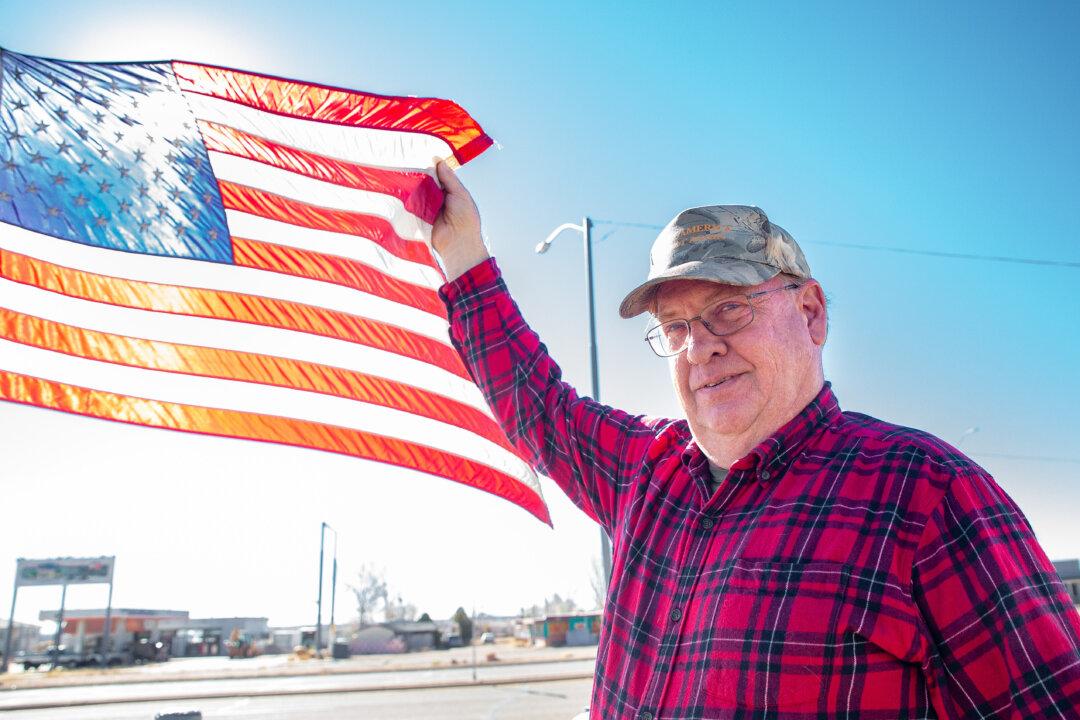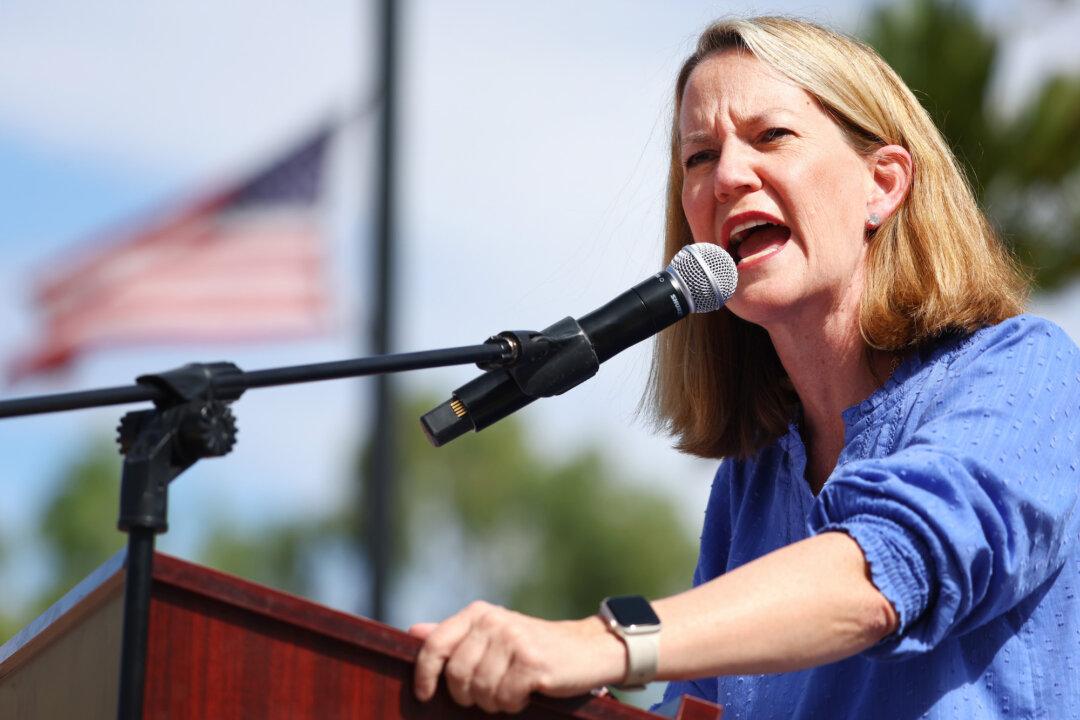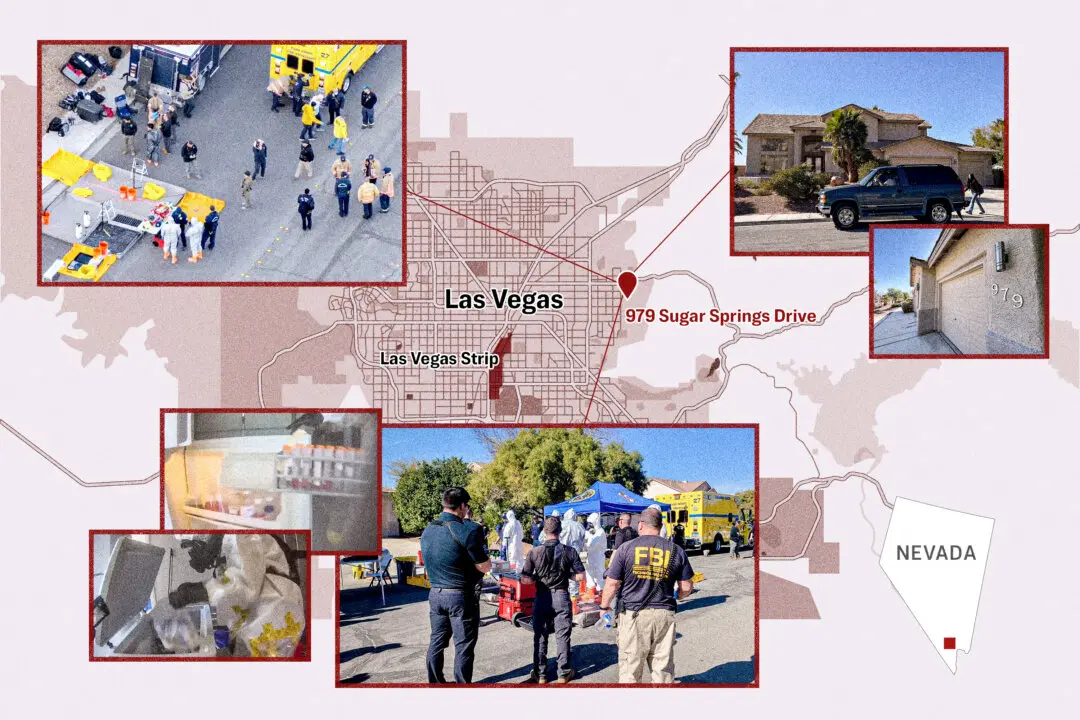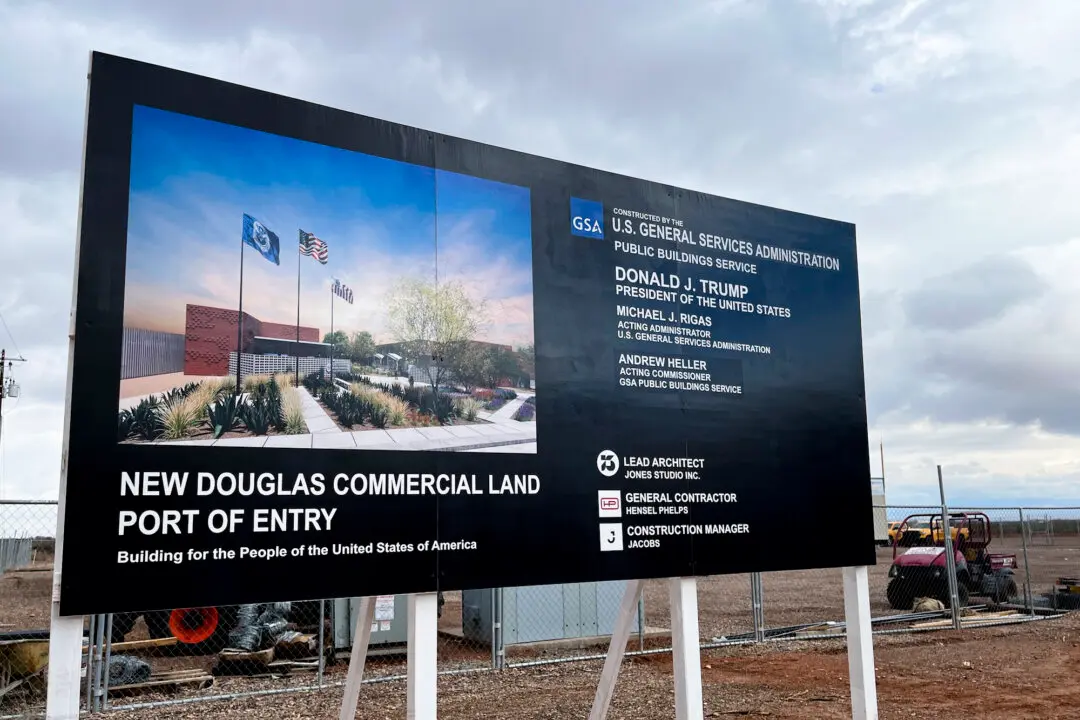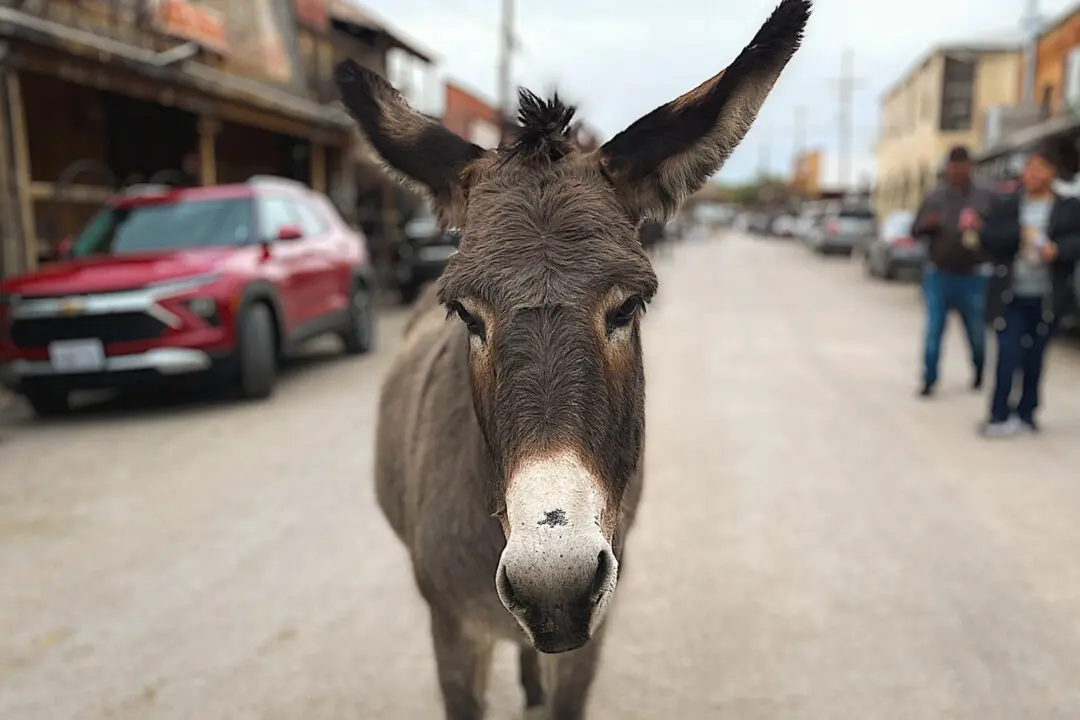Standing in a fallow cornfield next to a barren dogwood tree, an old abandoned farmhouse in southeastern Colorado appears to buckle under the weight of countless years gone by.
The tin roof is falling away in strips and unruly sections, revealing the rot and corrosion eating away at the wooden base.
